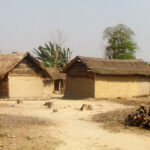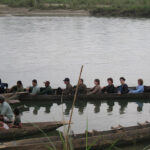
Tharu Village
Things To Do
Does the glimpse of the charm of ancient tharu village amaze you even today when you are totally engaged in your city life?
If yes, then why not think of taking a break from your stressful city life for a few days and having a rejuvenating experience in the rural Tharu villages of the Sauraha. Tucked away, the captivating villages in and around Sauraha will offer many lifetime memories that you would love to capture with your camera. Note that these little rural delights are the gift of glorifying the ancient era.
This famous Sauraha tour takes you away from the hustle & Bustle of city life and offers you a relaxing time and gives you a chance to recharge yourself with a unique moment to learn about rural life in Sauraha.
As you know, villages are a real mirror to know the local tradition, culture, food, and much more about any state. During Sauraha village Tour, our guide will explain about Tharu people and local culture. You can also peep into the history of Tharu and know lots of interesting facts about local culture and royal families, which can be thrilling and exciting for passionate travelers.
Sauraha is also known for its mouth-watering foods, and surely the cuisine of Sauraha is the gift of the ancestors. Countless food items are cooked daily in Sauraha, and travelers are also eager and ready to taste the food.
Dance
Traditional Tharu cultural dancing is a combination of graceful body movements in addition to elaborate costumes and music. There are a total of five different forms of Tharu cultural dances that are popular: Bhajayati(war dance) and Thekara (stick dance), Mayur Nach (peacock dance), Aag Nach (fire dance), and Jhamta. One of the most distinctive aspects of this Tharu art form is the costumes worn by the performers.
To have a better understanding of Tharu culture and tradition, we need to understand the dancing style and history of each dance. Dancing is an essential part of a culture and so it is for the Tharu culture.
Cultural dances play a huge role in Tharu societies. These dance forms are used to teach moral values, and social etiquette and to help people mature and celebrate members of the community while celebrating festivals and other occasions.
Traditional Tharu cultural dances are largely participatory and every ritual dance often has a time when spectators must participate.








